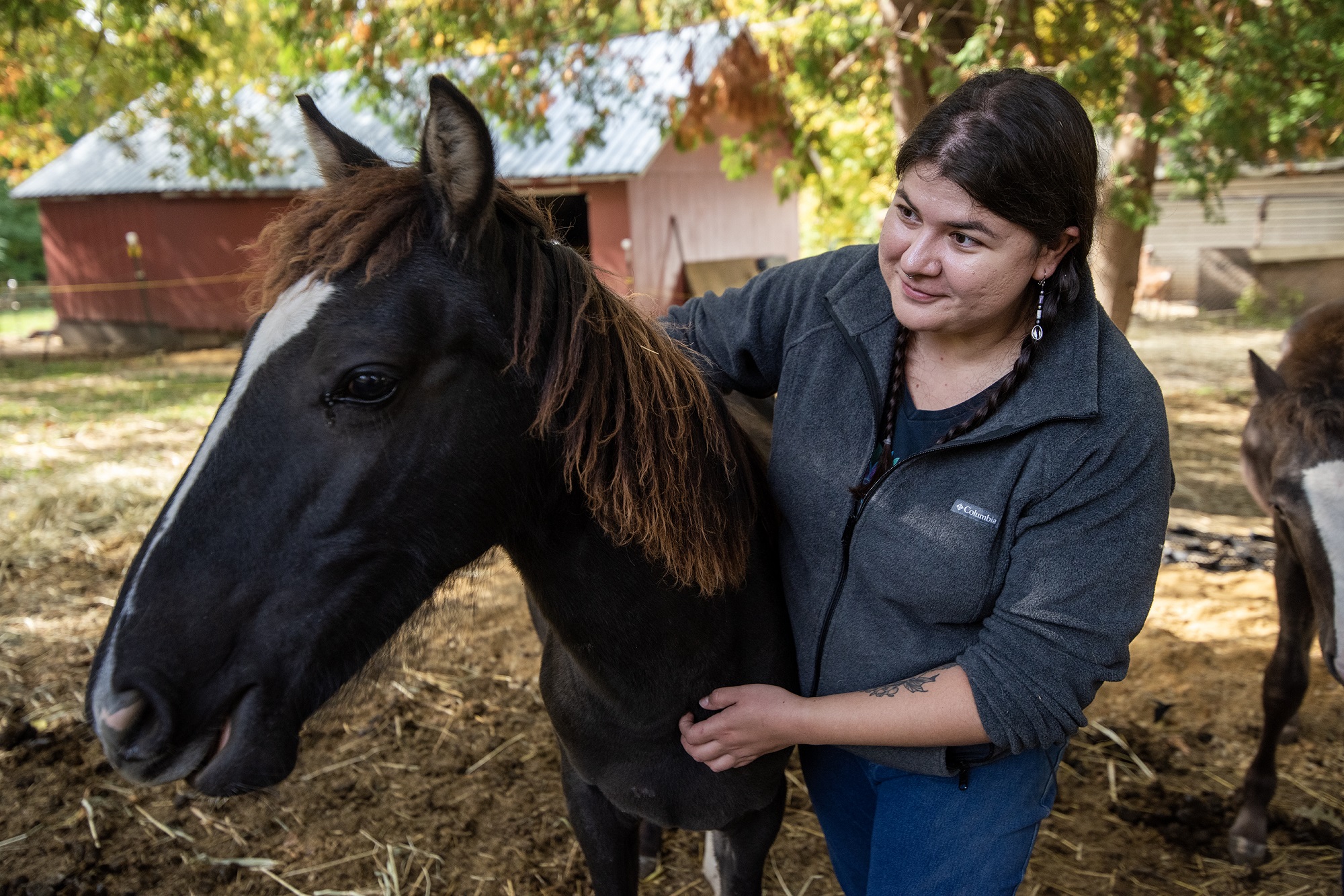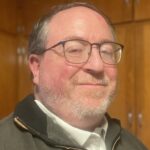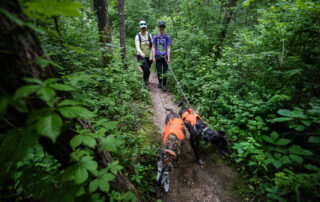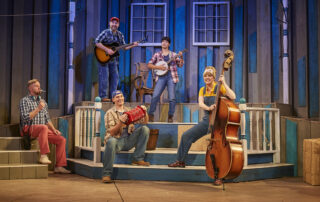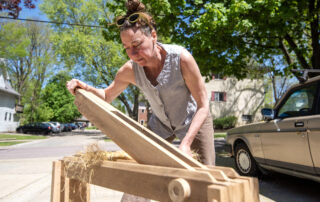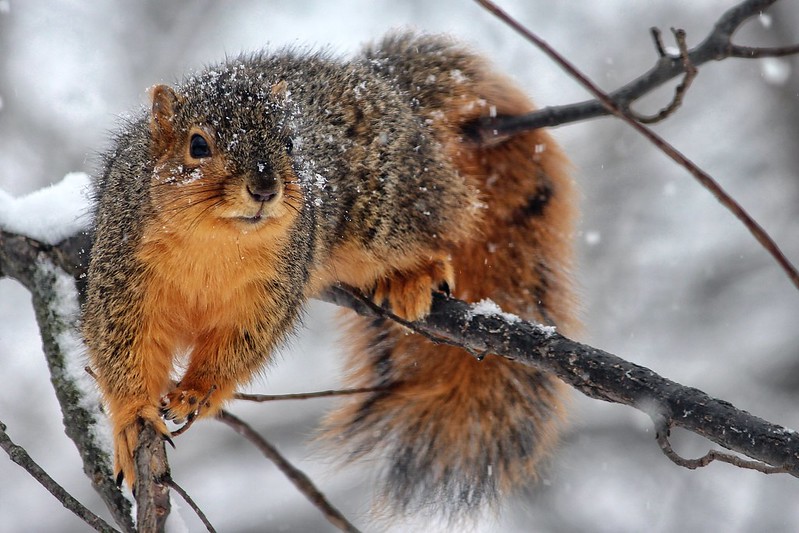Emily Loerzel’s horse, Dimii, neighs while other Ojibwe horses munch on hay during one sunny, fall day in October 2022. These rare breed of horses live at a farm where Loerzel and her husband live in Spring Valley, Wisconsin.
“I know mama!” Loerzel calls in response to Dimii’s neighs.
Loerzel raised money last year to rescue six Ojibwe horses from their Canadian owner who could no longer afford to take care of them. They now reside on the Spring Valley farm where she operates the nonprofit organization The Humble Horse.
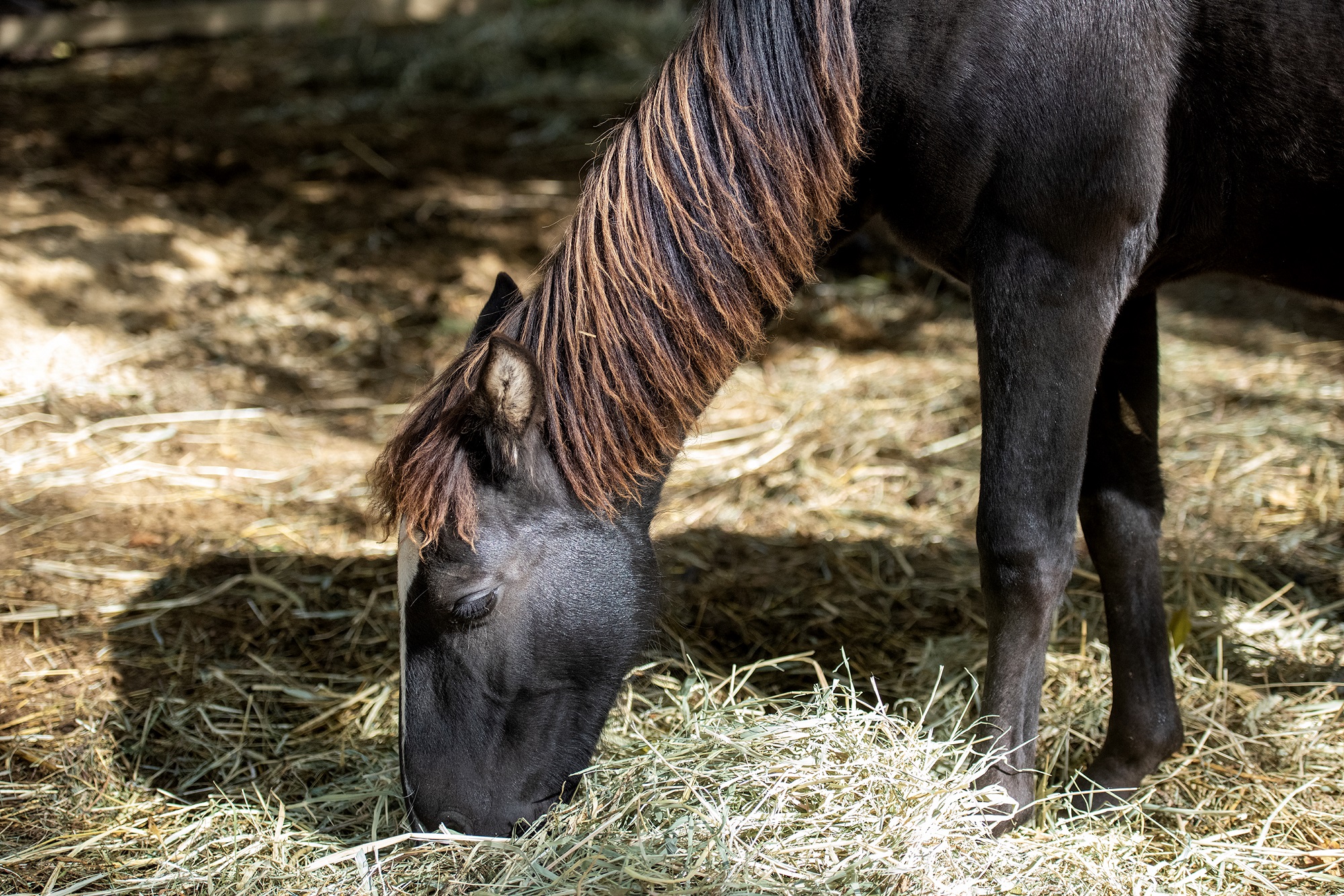
An Ojibwe pony stands in the sun on Em Loerzel’s property Monday, Oct. 3, 2022, in Spring Valley, Wis. (Angela Major/WPR)
“My husband and I, we both live on site. We attend to all of the daily needs of the herd, including things like fundraising and outreach and stuff like that. But, it’s a (volunteer-run) organization. So, we don’t get paid for anything that we do. All the donations go straight back for the horses,” said Loerzel, who is a descendent of the White Earth Nation. “A part of our mission here at The Humble Horse is to preserve the breed and to hopefully one day repatriate them back to Anishinaabe communities.”
Another horse neighs and nuzzles Loerzel as she lovingly scratches the Ojibwe pony. She identifies the horses present on this fall day and explains why she named them.
“In Anishinaabe culture, if you don’t have a name, your ancestors can’t find you. So, we gave everybody Anishinaabe names,” Loerzel explained. “That’s Noojimo. And, that’s Dimii, but we call her mama. And, then, there’s Baswewe, which is Echo. And, then, this is Animkii, who I guarantee you once you start giving him pets, he will stalk you to the end of days because he is just the friendliest.”
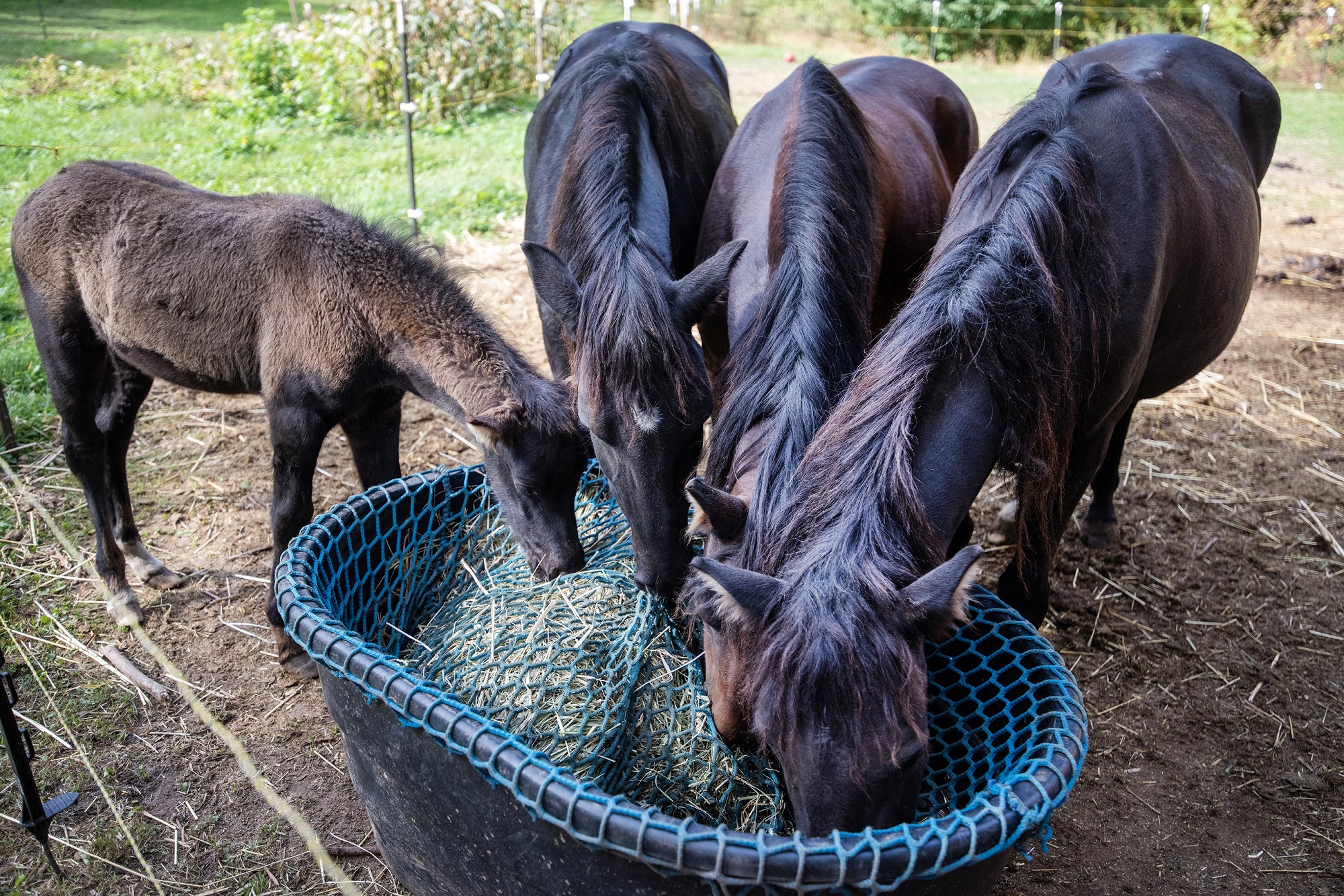
Ojibwe ponies are fed at Em Loerzel’s property Monday, Oct. 3, 2022, in Spring Valley, Wis. (Angela Major/WPR)
As she gazes on the horses while they graze, Loerzel recalled how she first learned of the rare breed of horses from her relatives.
“I have an Auntie Siobhan Marks and an Uncle Mark Denning. Uncle Mark actually grew up with these horses or he grew up with ponies, these small little ponies in the forest. I learned about these horses from him,” Loerzel said. “He would always tell me that his dream was to see these horses back in Wisconsin. Because as he was growing up with them, they eventually kind of disappeared.”
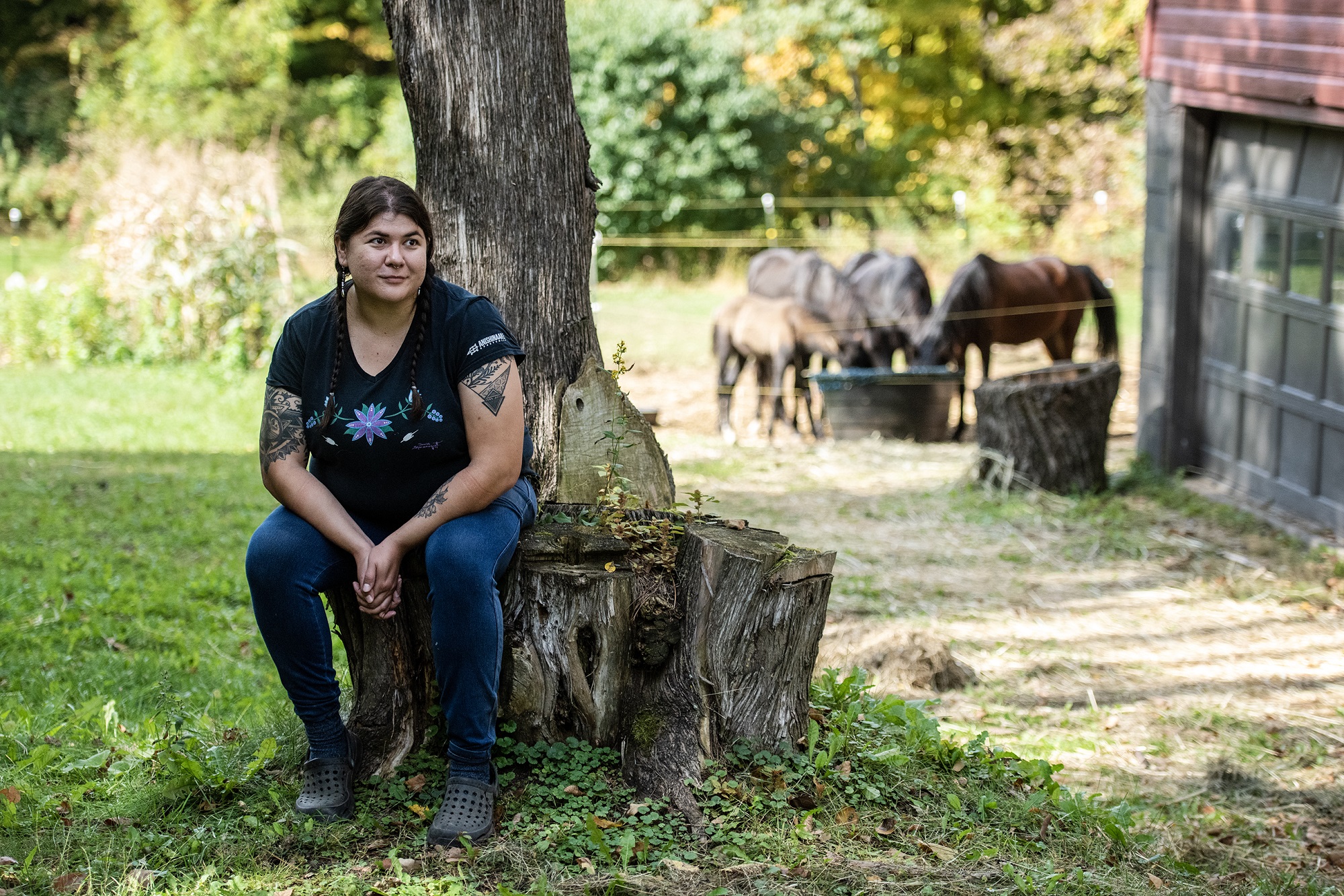
Em Loerzel at her property with Ojibwe ponies Monday, Oct. 3, 2022, in Spring Valley, Wis. (Angela Major/WPR)
Thousands of Ojibwe horses once roamed in the northern United States and Canada in the early 20th century. But, Loerzel said the rare breed almost disappeared entirely by the late 1970s.
“What we do know is there were only about four left in 1976. The last stallion was shot by a non-Indigenous researcher, who thought he was a moose in the 1960s,” she said. “So with only four mares left in 1976 — and the Canadian government saying these guys are a public nuisance, we’re going to destroy them — four members from the (Boise Forte) and Lac La Croix Nations got together in the middle of the night, loaded these four mares up onto a horse trailer, (and) actually border-hopped over the ice.”
Loerzel said the rescue has since been dubbed the “Heist Across the Ice.”
“They found sanctuary in a farm in Minnesota. They were able to repopulate. They were crossbred with a Spanish Mustang that was kind of the most phenotypically similar to the breed,” she said. “So, all of the horses today are related to those four mares.”
Now, Loerzel has been partnering with the University of Wisconsin- River Falls to collect semen from one of the horses: Mino Bimaadiziwin. The horse’s name means “A good life” in Ojibwe. She’s doing whatever she can to ensure the breed’s survival for the benefit of Anishinaabe communities.
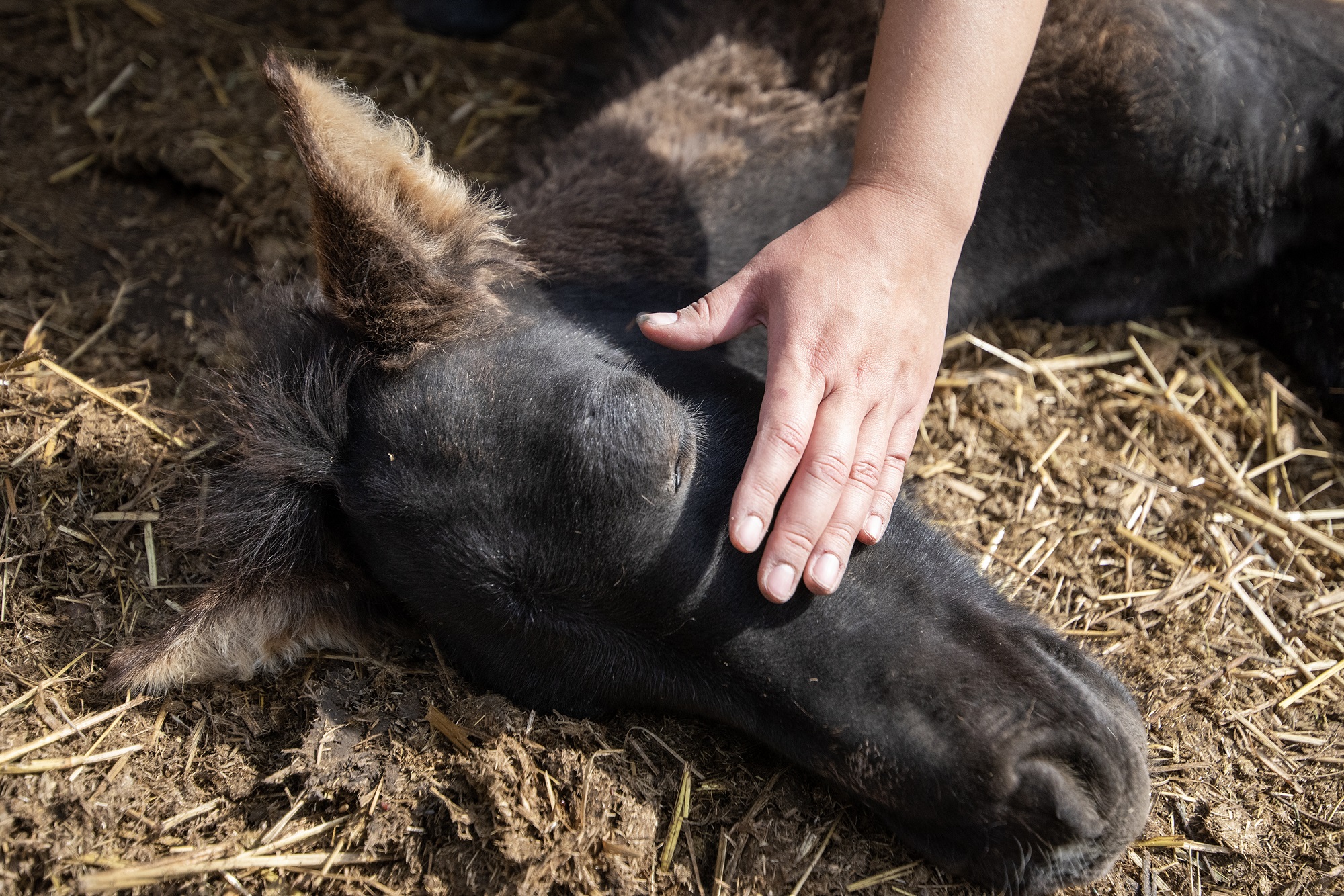
Em Loerzel pets a young Ojibwe pony as he rests on the ground Monday, Oct. 3, 2022, in Spring Valley, Wis. (Angela Major/WPR)
“I didn’t know we had (Ojibwe) horses until I was in my early 20s. Why is it that I didn’t know about these horses until I was that age?” Loerzel asked. “These horses were so vital to our survival. What’s cool about it is, it was a consensual relationship. We didn’t have to keep them penned up. They would come back every year around the winter to help us check trap lines (and) haul logs. There’s even stories of them pawing through ice to help with ice fishing.”
She said those are just a few examples of what the rare breed has given Ojibwe communities throughout history.
“So, because they helped Anishinaabe people survive and we consider them a relative,” Loerzel said. “I guess my question would be, wouldn’t you help your relatives survive?”
